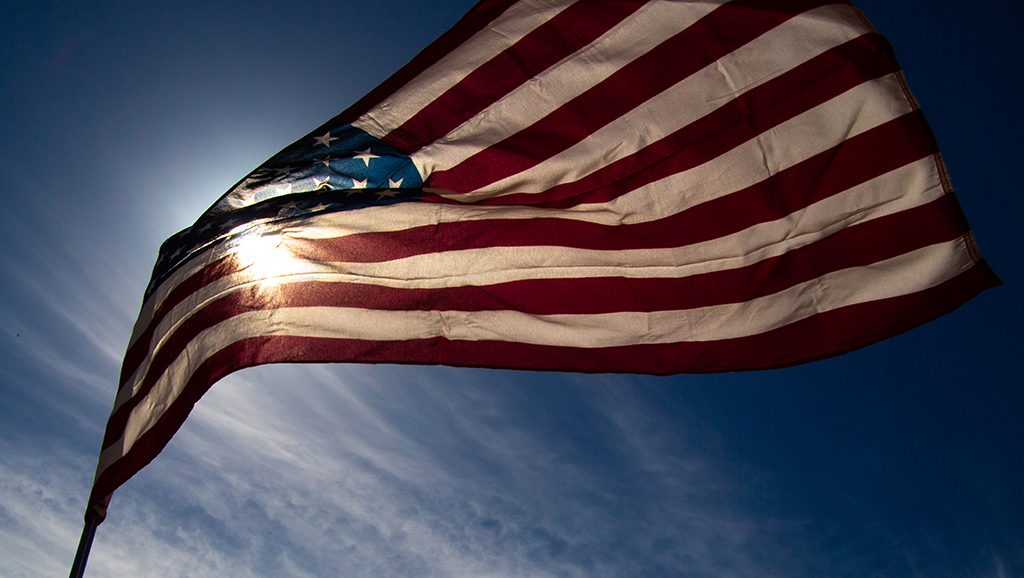With Independence Day occurring at a tumultuous time marked by a global pandemic and a national crisis over racial injustice, Climate gave local contributors carte blanche to write their perspectives on what makes America special. We will be publishing our contributors’ American Stories now through July 4. Keep an eye out for these unique and personal pieces.
—
I remember the precise moment I fell in love with jazz. It was on an evening in 1962, in the summer of an unforgettable pennant race between the Giants and the Dodgers. I was seven years old, lying in bed and listening not (as usual) to the ballgame but instead to the Dave Brubeck Quartet, whose captivating new sounds wafted from my parents’ stereo in the living room.
The tune was, “Gone with the Wind.” Paul Desmond’s alto saxophone solo was quick as Maury Wills and smooth as Willie Mays. And then there was Brubeck’s piano playing – simple yet seductive melodies, contrasted with bulging, thumping chords that seemed to fill the whole house. Who could sleep?
My parents’ record collection was vast and varied. As the years went by, I discovered Ella Fitzgerald, Tony Bennett, the Delta Rhythm Boys, Rosemary Clooney, Frank Sinatra and Tyree Glenn, as well as Broadway musicals and the big bands of Duke Ellington, Glenn Miller, Tommy Dorsey and Benny Goodman. I listened to my share of the Beatles and the Beach Boys, but in high school it was Buddy Rich who really took me downtown.
My mother had played in a dance band during her own high-school years, and our piano bench was stuffed with yellowing, wrinkled sheet music from the 1920s, ‘30s and ‘40s. As I studied piano in my adolescence and early teens, I began sneaking away from Bach fugues and Mozart sonatas, and cozying up to the likes of “Deep Purple,” “Stardust” and “Manhattan Serenade” – all while my mother shouted from the kitchen, “Practice your lesson!”
As much as the tremendous performers, it was the powerful vortex of the songs that sucked me in. The melodies were alluring and, more often than not, the lyrics were smart, especially when written by Ira Gershwin, Lorenz Hart or Dorothy Fields. But most of all, it was the harmonies that were intoxicating. I dug into the music the way a mechanically inclined kid would take apart a vacuum cleaner. Later, in college, music theory would become the one class I never skipped.
Upon graduation, I started playing jazz piano at night after working my day job as a writer. For 10 dollars I acquired an illegal “fake book.” It contained just melodies and basic chords, with the musician expected to fill in the ornamentations and deeper harmonies – in other words, to “fake it.” It was like a glittering, jangling charm bracelet, crowded with such baubles as, “I Got Rhythm,” “Ain’t Misbehavin’” and “Georgia On My Mind.” As I played through the book at bars and parties, I began to realize the incredible richness of American popular song, which captured the nation’s experience with everything from kisses and cocktails to lynchings and wars.
And that’s the thing. The Great American Songbook – the collection of hit tunes from around 1920 to 1970 – is about us: Americans, with all our myths, dreams and flaws. It is an immensely well-crafted chronicle of a fascinating, often-conflicted people at a particular time. It is classic, too, in that its melodies and stories are not just endearing, but also enduring. Jazz, and especially the Songbook, is among America’s great gifts to the world. And for me, it is the source of a longstanding romance that I know will never come to an end.
A regular contributor to Climate, Scott Dailey teaches piano and clarinet and leads his own jazz group.






